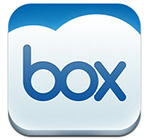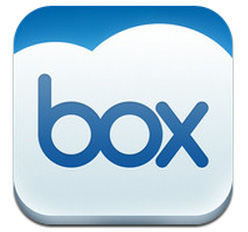Category: Software Equity Research
Box IPO: Freemium Pioneer
 Box (NYSE: BOX), the operator of a cloud-based collaboration platform, is a recent addition to the Software sector coverage of our Battle Road IPO Review. Box was founded in Mercer Island, Washington in 2005 by Aaron Levie, Dylan Smith, Sam Ghods and Jeff Quesisser, following research conducted by the group, which examined corporate cloud requirements. Levie is currently the CEO, Smith is CFO, and Dan Levin is COO and president of the company. Today, Box is based in Los Altos, California. Consensus estimates call for calendar year 2015 (fiscal year ending January 31, 2016) revenue of $290 million, up from $216 million in calendar 2014. The company’s loss per share is expected to narrow from $4.96 to $1.18 in the same time period.
Box (NYSE: BOX), the operator of a cloud-based collaboration platform, is a recent addition to the Software sector coverage of our Battle Road IPO Review. Box was founded in Mercer Island, Washington in 2005 by Aaron Levie, Dylan Smith, Sam Ghods and Jeff Quesisser, following research conducted by the group, which examined corporate cloud requirements. Levie is currently the CEO, Smith is CFO, and Dan Levin is COO and president of the company. Today, Box is based in Los Altos, California. Consensus estimates call for calendar year 2015 (fiscal year ending January 31, 2016) revenue of $290 million, up from $216 million in calendar 2014. The company’s loss per share is expected to narrow from $4.96 to $1.18 in the same time period.
The Box IPO was originally filed in March of 2014, but was postponed, presumably due to market conditions. The stock debuted on the New York Stock Exchange on January 23, 2015, at a price of $14.00 per share. Box offered 12.5 million Class A shares, with an underwriters’ option of another 1.9 million shares which was fully exercised. Morgan Stanley, Credit Suisse and J.P. Morgan were book-running managers for the transaction, BMO Capital markets was the lead manager, and Canaccord Genuity, Pacific Crest, Raymond Jones, and Wells Fargo were co-managers. At a recent share price of $17.80, Box’s market cap is roughly $2.1 billion.
Box is a pioneer of the “freemium” business model, in which it offers a free basic version of its software product to allow customers to get a feel for its service. In doing so, the company believes that it offers ease of use akin to Facebook, and other consumer facing internet applications. With Box, users can invite people to view or edit their files, as well as share their documents and photos. This allows employees to collaborate across different divisions of the same company regardless of geography, as well as with clients and partners in one secure place, anywhere, anytime, in 15 different languages. The company monetizes use through paid subscription fees to its more feature-rich service, as well as through premium support services, and professional services.
Box boasts over 32 million registered users, including users in nearly 100 percent of the Fortune 500. However, the sub-set of paying users is 47,000, which includes users in about half of the Fortune 500. As a free to use service initially, Box entices users throughout a company with its easy to use functions, security and scalability, which are designed to work for all files, locations, platforms, devices and operating systems, boasting features such as online storage, and custom branding.
Data from cloud apps developed by the likes of Salesforce.com (an investor in Box), as well as NetSuite and Googles Apps can be integrated into Box as well. Over 1,300 iOS and Android Apps have been developed by software developers certified by Box, and the company’s mobile version works with the Android, Windows Phone, iOS, Blackberry and WebOS platforms.
From a business model standpoint, Box has not come close to generating operating income since its founding. Echoing the results of many venture capital-backed internet and software IPOs of the last couple of years, Box has been generating losses at an increasing rate. Between 2012 and 2013, the company’s revenue more than doubled from $59 million to $124 million, yet its operating loss grew from $109 million to $159 million. Through the first nine months of 2014 the company generated revenue of $154 million, with an operating loss of $120 million. We note that Consensus estimates for 2015 call for a dramatic reduction in the company’s operating losses. An open question remains how quickly the company can achieve profitability. As a venture-backed IPO, our sense is that the company’s pre-IPO investors are sure to push for a secondary offering, thus expanding the float of the stock, we suspect sooner rather than later.
To see how Box screens against its cloud software peers which have come public in the last seven years, contact info@battleroad.com.
Veeva Systems: Focused on Pharma
![]() Veeva Systems (NYSE: VEEV), a provider of cloud-based sales force and content management software to the bio pharma industry, is a relatively new addition to our Battle Road IPO Review Software coverage. Consensus estimates call for revenue of $276 million and $0.24 in earnings in fiscal year 2015 (ending January 31, 2015).
Veeva Systems (NYSE: VEEV), a provider of cloud-based sales force and content management software to the bio pharma industry, is a relatively new addition to our Battle Road IPO Review Software coverage. Consensus estimates call for revenue of $276 million and $0.24 in earnings in fiscal year 2015 (ending January 31, 2015).
Based in Pleasanton, CA, Veeva was founded in 2007, and known originally as Verticals onDemand. The company changed its name to Veeva Systems in 2009. Veeva launched its IPO on the NYSE through the issuance of 15 million shares on October 21, 2013, priced at $20.00 per share. The company sold 11.7 million shares, and selling stockholders sold the remainder, as the company raised roughly $216 million, net of bankers’ fees. The transaction was led by Morgan Stanley, Deutsche Bank Securities, Pacific Crest, Stifel, Nicolaus, Wells Fargo, and Canaccord Genuity. Post-IPO, the company sports a $2.7 billion market capitalization.
Veeva serves pharmaceutical and biotech companies with a series of solutions that manage interactions between drug company sales reps and physicians, as well as a content management vault that is utilized by drug companies to manage the content relating to clinical trials, quality management, manufacturing, sales and marketing. Importantly, over 95 percent of sales comes from its CRM product.
Veeva Network, a third product set, was recently introduced in November, and appears to be a data vault which is populated with customer-specific information, and is sold as a subscription to pharma and biotech companies. Roughly 60 percent of revenue comes from North America, with the remainder from overseas markets.
Veeva’s software is sold typically as a one-year subscription, and software accounts for about 70 percent of total sales, while implementation fees account for the remainder. This relatively high level of implementation fees indicate that Veeva’s customers require a fair amount of customization of the base-level product. Software products grew by over 90 percent in the most recent quarter, while services were essentially flat. Gross margins on subscriptions run in the 70 percent plus range, while services margins are in the mid twenties. Veeva’s non-GAAP operating margin was 18 percent in the most recent quarter.
For its CRM product, Veeva tallies the addressable market at roughly 450,000 direct sales reps from the drug, animal science, and consumer health industries. Veeva acknowledges that this number has not changed much in the last several years, but that the company’s opportunity is to replace client server software from the likes of Siebel Systems (now Oracle), as well as homegrown contact management systems that are less robust.
Veeva’s platform is based on Salesforce.com (NYSE: CRM), and it pays royalties to
Salesforce.com for the base level platform on which its software is built. That said, it does compete against Salesforce.com, as some companies prefer Salesforce’s generic functionality and lower sales price. Veeva also competes against Cegedim, a French-based healthcare IT company that offers mobile sales force automation solutions specifically tailored to the bio-pharma business, in part due to its acquisition of Dendrite, a US company. To see how Veeva Systems screens against its software peers within the Battle Road IPO Review Software coverage universe, please contact: info@battleroad.com.
- ‹ Previous
- 1
- 2
- 3
- Next ›

